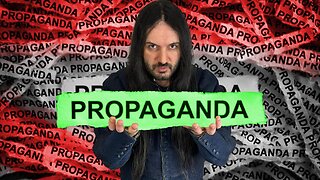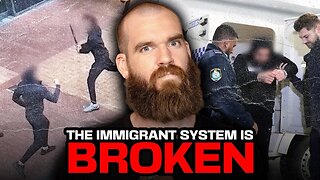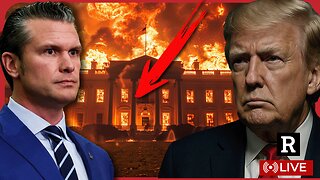Premium Only Content

Charlie Kirk’s Assassination: Facts, Theories, and the AIPAC Conspiracy Spiral
The assassination of conservative activist Charlie Kirk has ignited a storm of speculation, political finger-pointing, and conspiracy theories. While law enforcement has already charged a suspect in the killing, prominent voices like Candace Owens are amplifying claims that the murder was orchestrated by powerful pro-Israel groups, particularly AIPAC.
According to official reports, Kirk was fatally shot during a Turning Point USA event. The identified suspect, 22-year-old Tyler Robinson, was arrested and charged with aggravated murder. Investigators say Robinson had a long-running obsession with Kirk, leaving behind a digital trail of disturbing messages, online activity, and a clear fixation. Surveillance footage and forensic evidence tie Robinson to the crime scene, reinforcing the conclusion that he acted deliberately. Prosecutors have not suggested a wider plot, though they are reviewing possible connections.
Despite this evidence, speculation has spread quickly online. Owens and others argue that Kirk was targeted for his recent outspoken positions. In the weeks before his death, Kirk invited conservative commentator Ben Shapiro onto his platform, where he raised concerns about the ongoing devastation in Gaza. He also publicly called for transparency regarding the unreleased Jeffrey Epstein files, which he suggested could expose ties between Epstein, Donald Trump, and Israel. Owens believes that these moves transformed Kirk from a mainstream conservative influencer into a perceived threat to entrenched power, leading to his elimination.
These claims go further, suggesting that AIPAC—the American Israel Public Affairs Committee—played a role. Some conspiracy narratives frame AIPAC as the successor to the “American Zionist Council” and accuse it of wielding undue influence by funding politicians, shaping media narratives, and silencing critics of Israel. Owens has floated the idea that Kirk’s willingness to “seek the truth” made him expendable.
But while the theories thrive on social media, fact-checkers, watchdog organizations, and individuals named in these allegations have pushed back forcefully. Billionaire Bill Ackman, one of the figures Owens accused of coercing Kirk, has outright denied involvement. Groups like the Anti-Defamation League warn that antisemitic conspiracy theories are spreading rapidly in the wake of the tragedy, fueled by grief, anger, and political polarization. So far, no verifiable evidence has linked AIPAC or any pro-Israel group to Kirk’s killing.
AIPAC itself is a Washington-based lobbying organization founded in the 1950s to support U.S.–Israel relations. While it exerts political influence through campaign donations and policy advocacy, there is no credible record of it orchestrating assassinations. Attempts to tie Kirk’s death directly to AIPAC rest on speculation, not substantiated fact.
What is clear is that Kirk’s killing has become more than a criminal case. It has transformed into a cultural flashpoint, where grief, distrust of institutions, and preexisting suspicions about global power collide. The narrative that he was silenced for telling inconvenient truths resonates with many who already feel alienated from mainstream politics. But the evidence, as it stands, points to a single disturbed individual—not an international conspiracy.
Until investigators release further findings, the case remains both a tragedy and a cautionary tale about how swiftly conspiracy theories can overtake facts in the digital age.
-
 19:14
19:14
MetatronCore
18 hours agoHow Propaganda works on your Brain
41 -
 LIVE
LIVE
Barry Cunningham
3 hours agoLIVE BREAKING NEWS: Erika Kirk and TPUSA Have Had It With Candace Owens | Where Are The Children?
2,416 watching -
 15:30
15:30
IsaacButterfield
17 hours ago $0.22 earnedViolent Immigrant Crime Is Exploding in Australia
1K12 -
 8:37
8:37
DBoss_Firearms
8 hours agoHow hard is it to shoot with a G-Flex Trigger?
11 -
 1:05:17
1:05:17
BonginoReport
4 hours agoWhite House Claps Back At Sabrina Carpenter - Nightly Scroll w/ Hayley Caronia (Ep.189)
96.7K25 -
 1:06:50
1:06:50
TheCrucible
5 hours agoThe Extravaganza! EP: 69 (12/03/25)
66.6K18 -
 1:08:49
1:08:49
Kim Iversen
5 hours agoEpstein Island: What's With The Creepy Medical Chair and Masks?
41.2K38 -
 23:54
23:54
Jasmin Laine
6 hours agoCarney’s WORST Day EVER—BOOED, Fact-Checked, and Forced to FLEE the House
24.6K19 -
 1:59:47
1:59:47
Redacted News
5 hours agoDeep State Coup Coming for Trump? New JFK Files Released and NATO Preparing Attack on Russia
163K114 -
 7:31:43
7:31:43
Dr Disrespect
11 hours ago🔴LIVE - DR DISRESPECT'S TRIPLE THREAT CHALLENGE - ARC RAIDERS • BF6 • FORTNITE
102K8